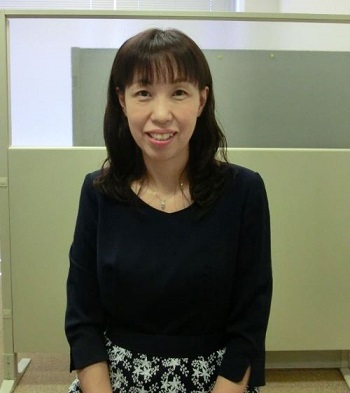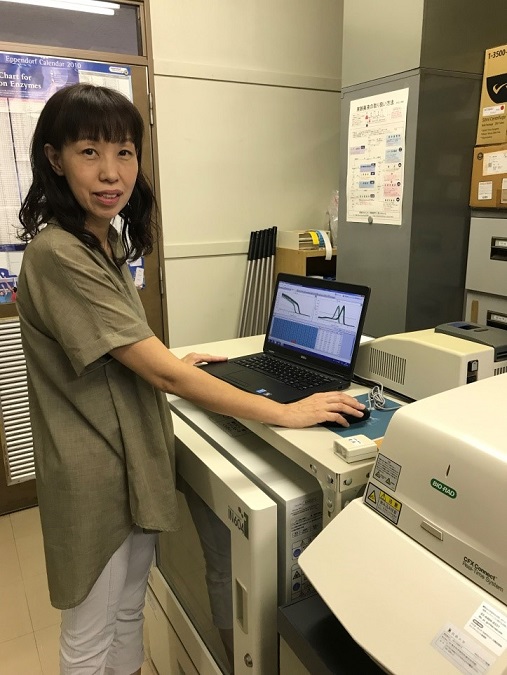Doctor Eiko Iwakoshi, Laboratory of Neuroendocrinology, Graduate School of Integrated Sciences for Life

Can you please describe your field of research?
My field of specialty is neuroendocrinology. I'm interested in the biological diversity and uniformity of animals. I try to understand those things from the point of view of biologically active substances, mainly bioactive peptides. Different animals have different functions of the same peptide, chickens and fish have oxytocin-related peptide for example. I think it is closely related to evolution.
What got you into this field?
I graduated from Hiroshima University for both my undergraduate and PhD, I feel like it's my destiny to work here! I worked in Osaka for a medicine manufacturer designing packages and working on patents, but I wanted to get into science.
Both me and my husband work in biology and my daughter was never interested in becoming a scientist. Now after learning it in school she wants to be a chemist!
What achievement you are most proud of?
I discovered a brand-new substance! It is an almost impossible task, almost everyone fails at it. Now I have a new peptide that I got to name, neurosecretory peptide GL (NPGL), that exists throughout vertebrates.
Can you describe some challenges of your work?
I like my position! A part of me says I want to become a PI (principal investigator) like most scientists but the other part of me says I don't. I am working towards being a PI, I have gotten many grants and some awards. The reasons I am saying no is because I wouldn't have any choice in where I will be situated. If I was appointed as a PI I would have to go to the place they decide. It is almost certain that I would have to live separately from my family.
What motivates you in your research?
There are many good things in my position. I can take huge chances, in other words, I can do tasks that are impossible for a PI. It's ok if I fail at something! Further, I can spend most of my time on my experiments because I don't have classes, or the many meetings PI's have. As a result, I could find the novel peptide NPGL.
Anything exciting coming up in your research?
NPGL induces fat accumulation in chicks, rats and mice. I want to clarify the mechanism and find out:
- Why is it necessary to accumulate fat by NPGL?
- When do we require NPGL?
Fat accumulation is required for puberty, secondary sex characteristics, in a female such as hibernation in some mammals and migration in birds. Now I'm focusing on a hamster that hibernates during winter.

Dr. Iwakoshi looks at the data of qPCR
What makes a great work environment?
I work in the same laboratory with my husband. My professor and his professor worked together on many studies and then we were interested in the same target. We always talk about our studies and share information, for example, the progress of an experiment, the condition of a student and research expenses.
Hiroshima University, especially the Gender Equality Promotion Office has done a deal with women scientists. They have always supported me. I'm so grateful that they make a good work environment and we are doing really well so far.
What do you like to do when you're not working?
I like to go out to museums and shopping with my daughter. We also visit our parents and help them. It is important to take care of our parents.
Dr. Iwakoshi and her collaborators in UC Berkeley (Prof. Kriegsfeld Lab)
Dr. Iwakoshi and her collaborators in UC Berkeley (Prof. Kriegsfeld Lab)
Originally written by Emma Buchet (Hiroshima University Science Communication Fellow)

 Home
Home